Corcovado Beach Lodge and the Puerto Jimenez Area
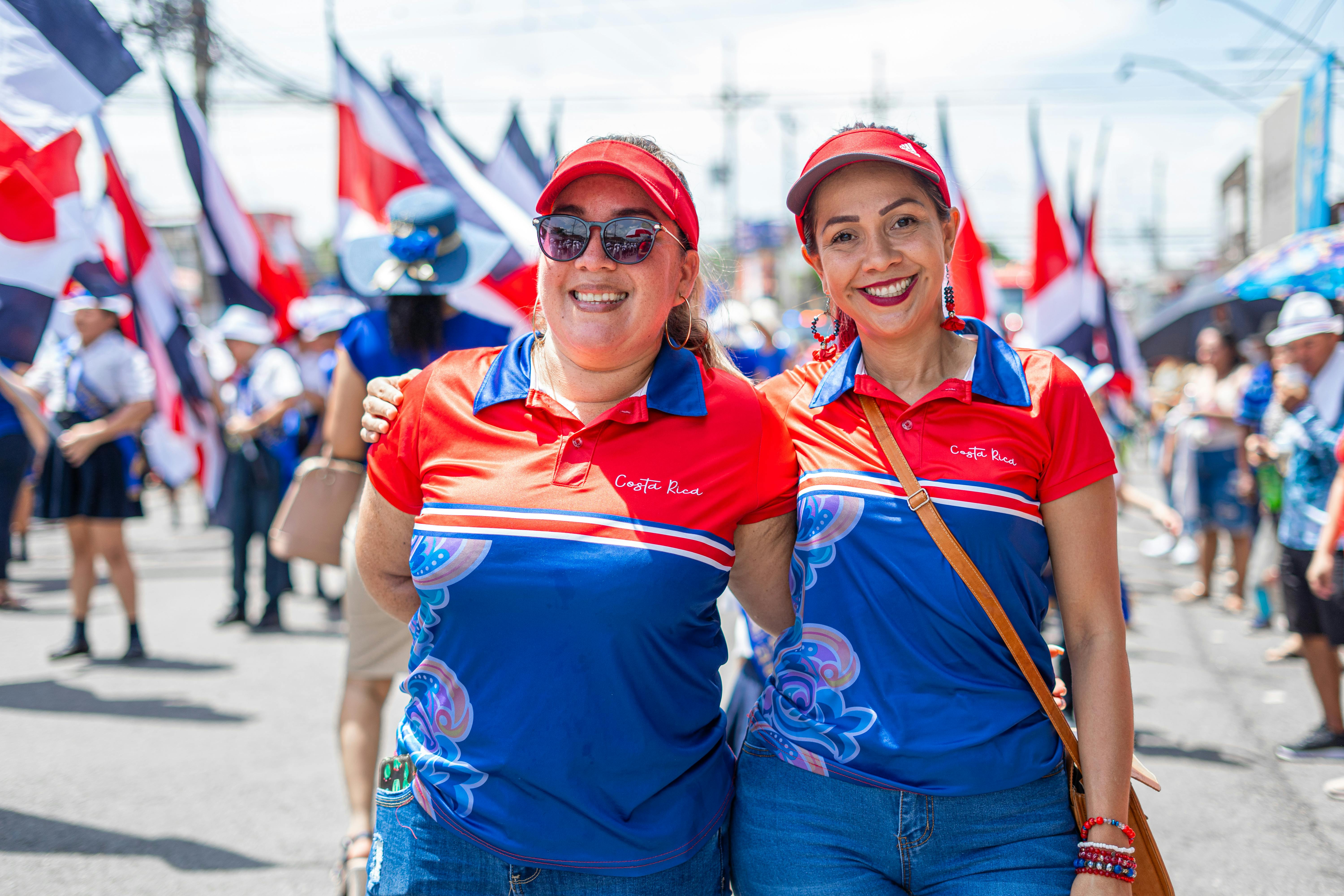 Photo by George Chambers: https://www.pexels.com/photo/young-women-in-t-shirts-and-baseball-caps-19817540/
Photo by George Chambers: https://www.pexels.com/photo/young-women-in-t-shirts-and-baseball-caps-19817540/During our eco-tourism trip to Costa Rica, We stayed in a charming eco-lodge, the Corcovado Beach Lodge, nestled deep within the rainforest, a true retreat from the hustle and bustle of everyday life. The lodge was designed with sustainability in mind, blending seamlessly into the natural landscape. It offered a truly immersive experience, where the sounds of the jungle – from the calls of howler monkeys to the rustle of leaves in the wind – were the soundtrack to our stay. Our cabin was simple yet comfortable, with open windows allowing us to feel like we were sleeping in the heart of nature itself.we had the opportunity to explore some truly breathtaking places, particularly in the Puerto Jiménez area.
The trip was filled with natural wonders, and we were fortunate enough to experience three incredible tours booked through that introduced us to the heart of Costa Rica’s rich biodiversity. One of the highlights was visiting the “Sloth Garden,” a sanctuary dedicated to these adorable creatures, where we had the chance to observe them in a safe and natural environment. However, in this article, I want to focus on the place where we stayed and some of the independent activities we enjoyed, giving you a personal account of our journey.
Beyond the tours, we also sought out independent activities that allowed us to connect with Costa Rica’s natural beauty on a more personal level. One day, we decided to hike through a nearby wildlife reserve on our own, following a winding trail that took us through dense rainforest and alongside pristine streams. The path was lined with exotic plants and vibrant wildlife, and we were fortunate enough to spot a variety of birds and insects along the way. The highlight of the hike was reaching a stunning viewpoint that overlooked the Pacific Ocean – a moment of pure tranquility that made the physical effort of the trek worthwhile.
Another memorable experience was our visit to a nearby cacao farm, where we learned about the history and process of chocolate production. We were guided through the lush plantation, where cacao trees grew in abundance, and had the chance to sample fresh cacao fruit. Our guide explained the significance of cacao to the local economy and culture, and we even got to participate in a hands-on chocolate-making demonstration. It was an educational and delicious experience that further deepened our appreciation for Costa Rica’s natural resources.
Throughout our trip, we prioritized sustainability and responsible travel, ensuring that our activities aligned with the principles of eco-tourism. We were conscious of minimizing our environmental impact and supporting local businesses that were committed to conservation efforts.
This article isn’t about promoting specific companies or destinations – it’s simply a reflection on our incredible eco-tourism experience in Costa Rica, where we had the chance to not only learn about the country’s wildlife and ecosystems but also actively participate in preserving them for future generations. If you ever get the chance to visit Puerto Jiménez and its surrounding areas, I highly recommend it. Whether you’re exploring the depths of the rainforest or simply relaxing in a hammock listening to the sounds of nature, Costa Rica offers an unforgettable experience for any eco-tourist.
Corcovado Beach Lodge
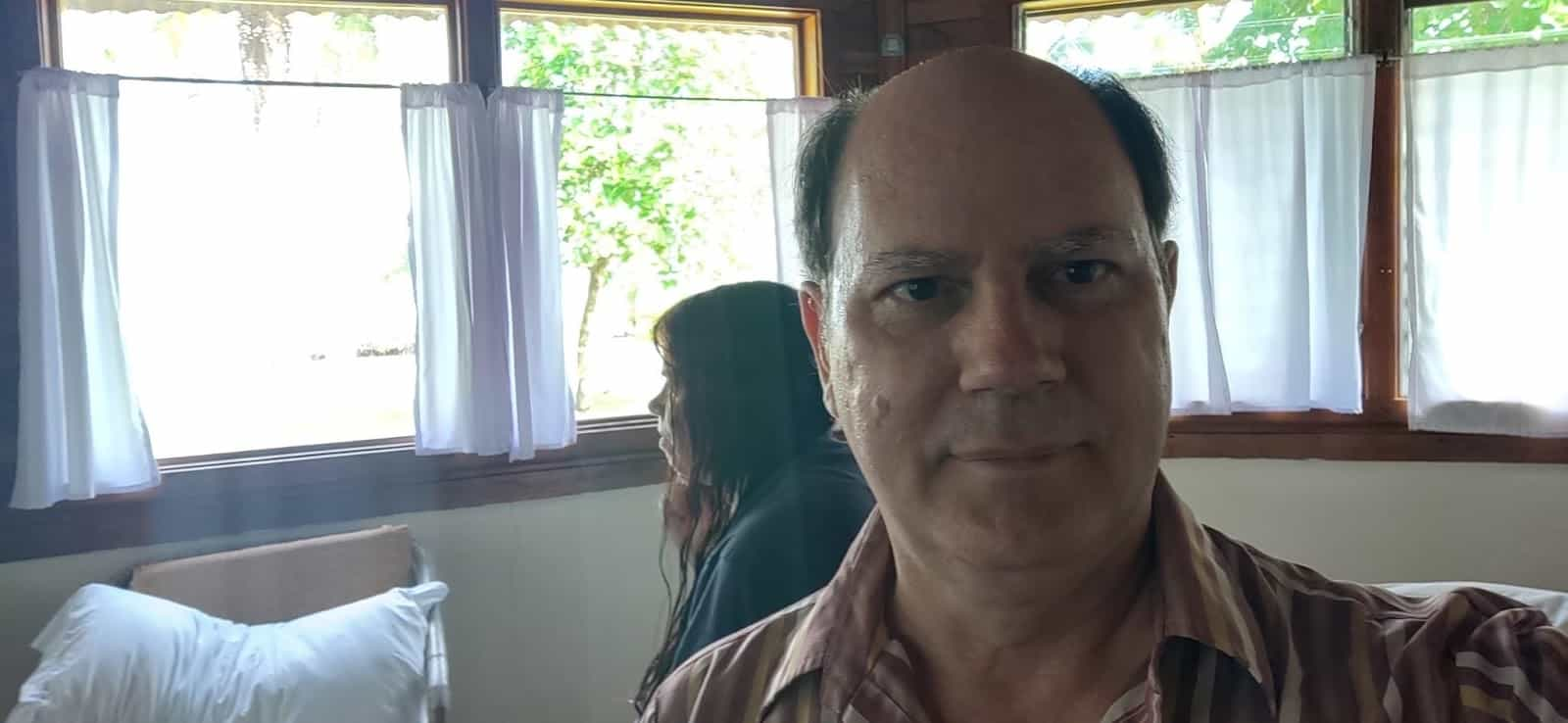
We had the pleasure of staying in a charming beachfront casita at Corcovado Beach Lodge, which offered a perfect blend of comfort and natural beauty. The casita was uniquely designed in a circular shape, allowing for panoramic views from every angle. The large windows encircling the structure provided us with the perfect vantage point to gaze out at the stunning beach just steps away. Whether we were relaxing indoors or enjoying the gentle breeze, the breathtaking view of the sparkling ocean and the surrounding lush greenery was always within sight. It was the ideal retreat to unwind and immerse ourselves in the serene beauty of Costa Rica’s coastline.
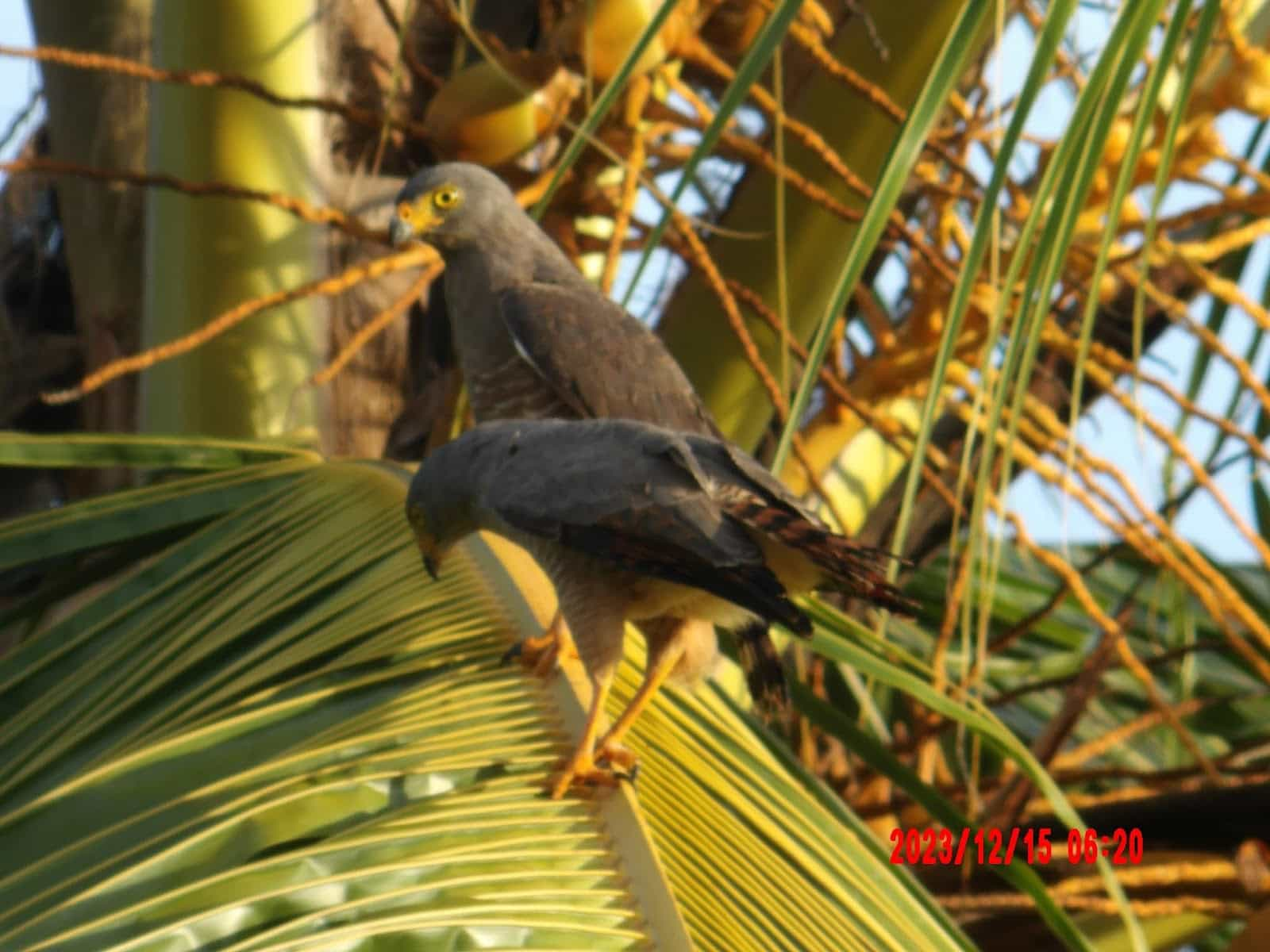
There was a porch where they served breakfast and we could see wildlife from that porch. It was amazing!
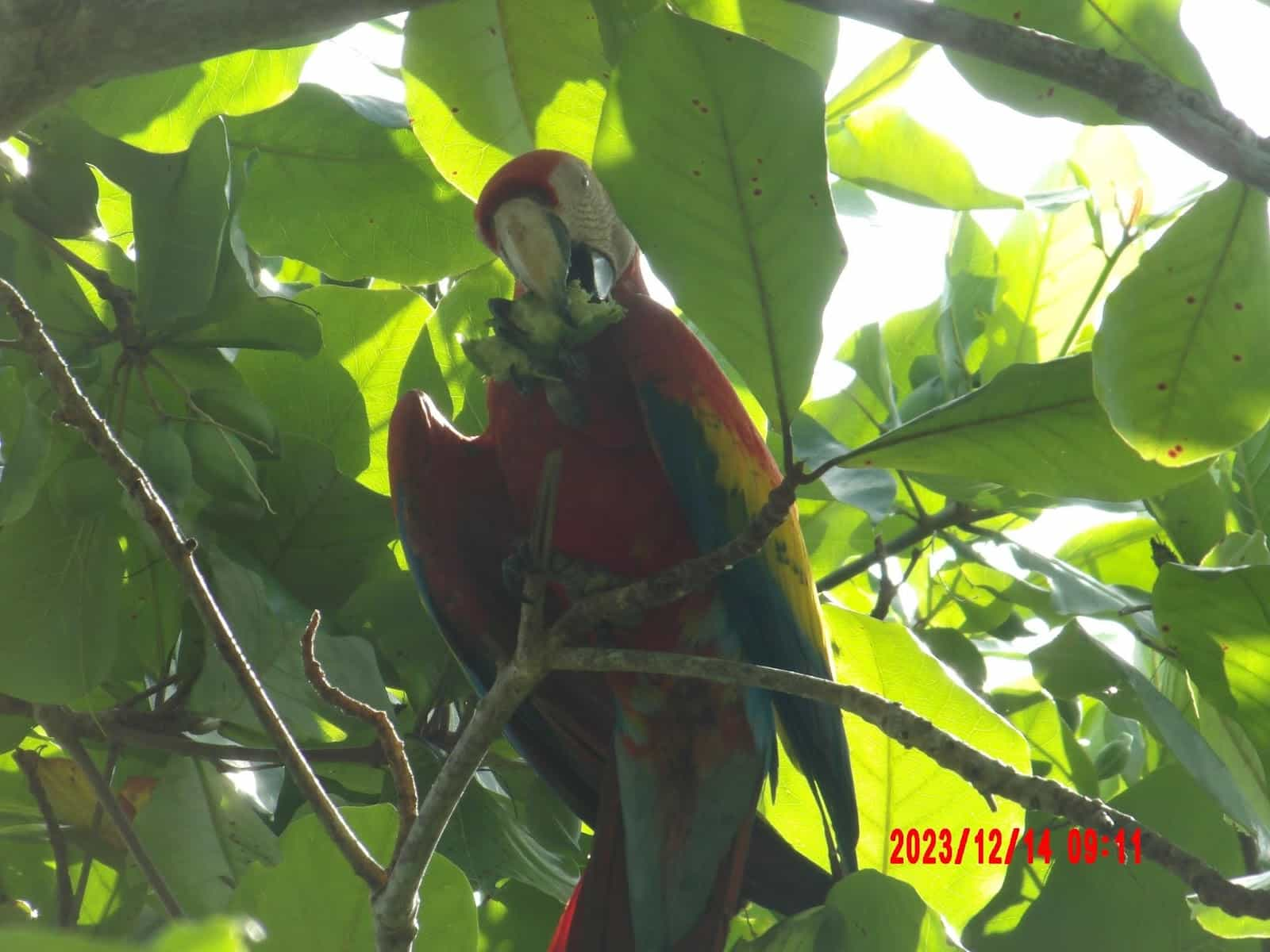
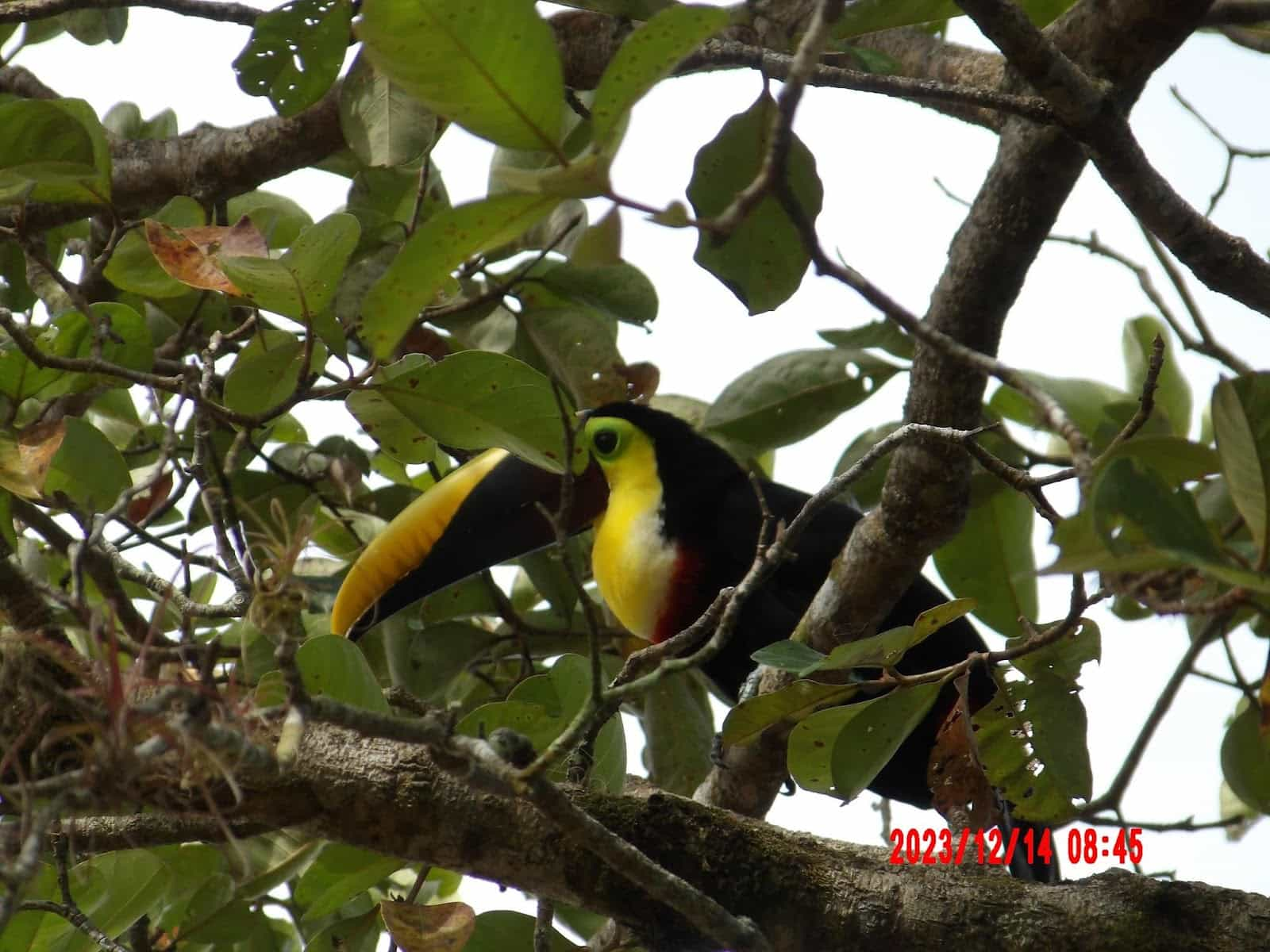
It was hard to find the place at first. Our GPS sent us close, but not at the correct place. Once we knew where to go, we were able to find it easily.
The first night we walked down a path to a restaurant. On the way home we ran into some wildlife on the path. I have no pictures of he huge crocodile sitting on the path with its mouth open because I immediately started running in the opposite direction!!! The people at the restaurant said there are definitely crocodiles around and it wouldn’t help to go back to the hotel by walking on the beach because that’s where the crocodiles were headed. We called the hotel nd someone came to escort us back. By then the crocodile was gone. He said they keep their mouths open to regulate their body temperature, they don’t really bother you unless you come right up to them, and they just want to be left alone.
Beaches
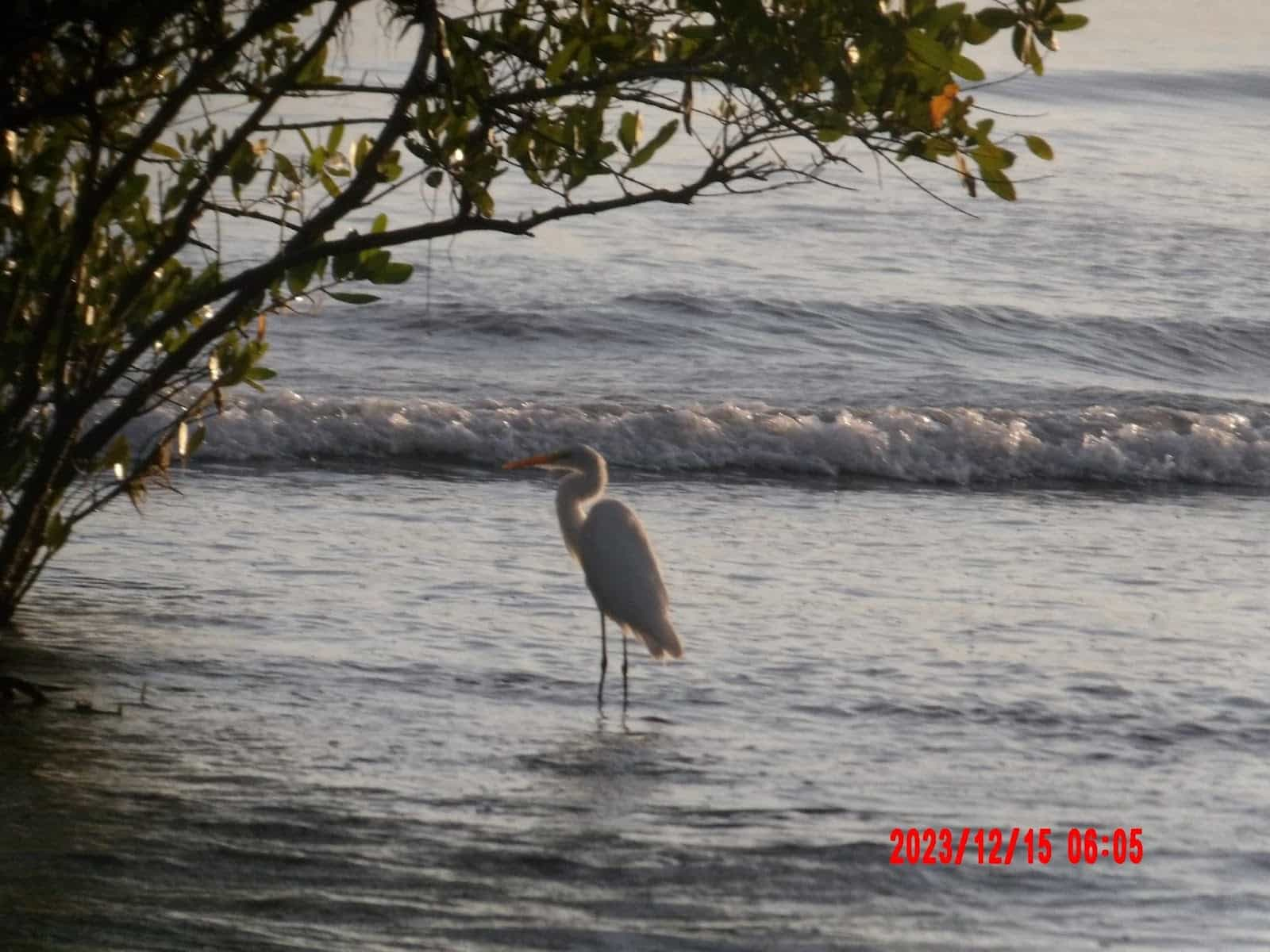
We walked a lot on the beach right by the hotel.
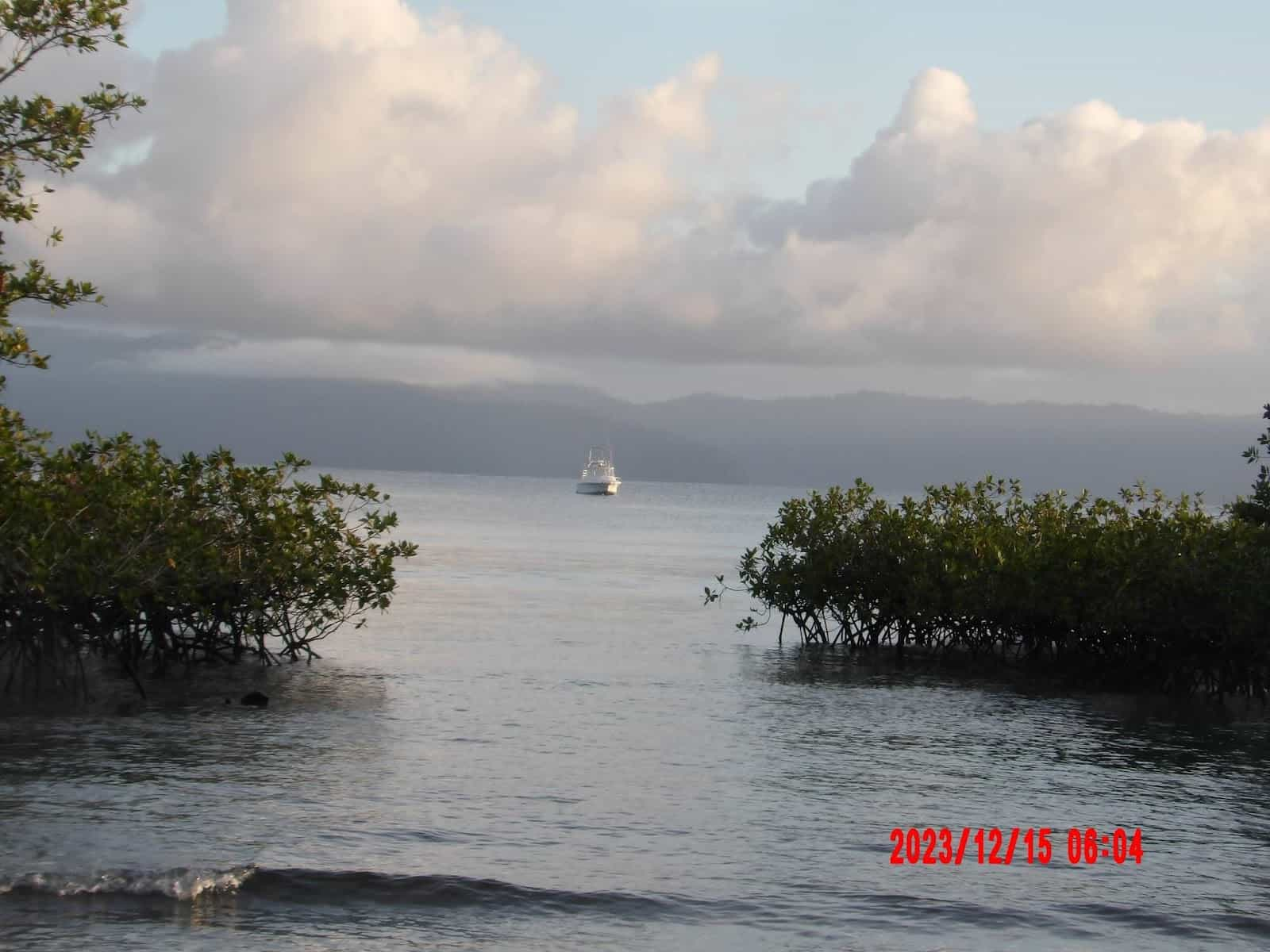
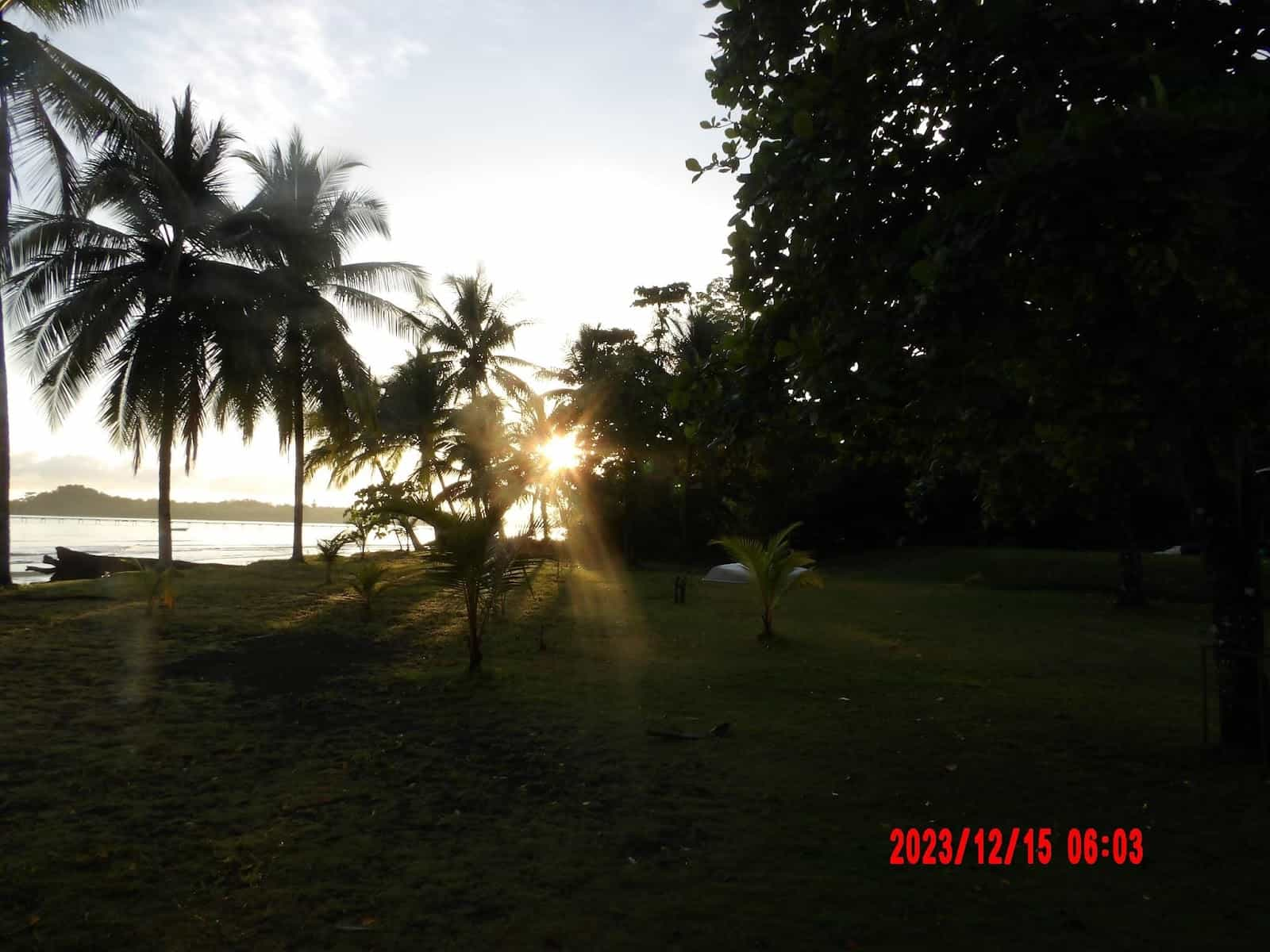
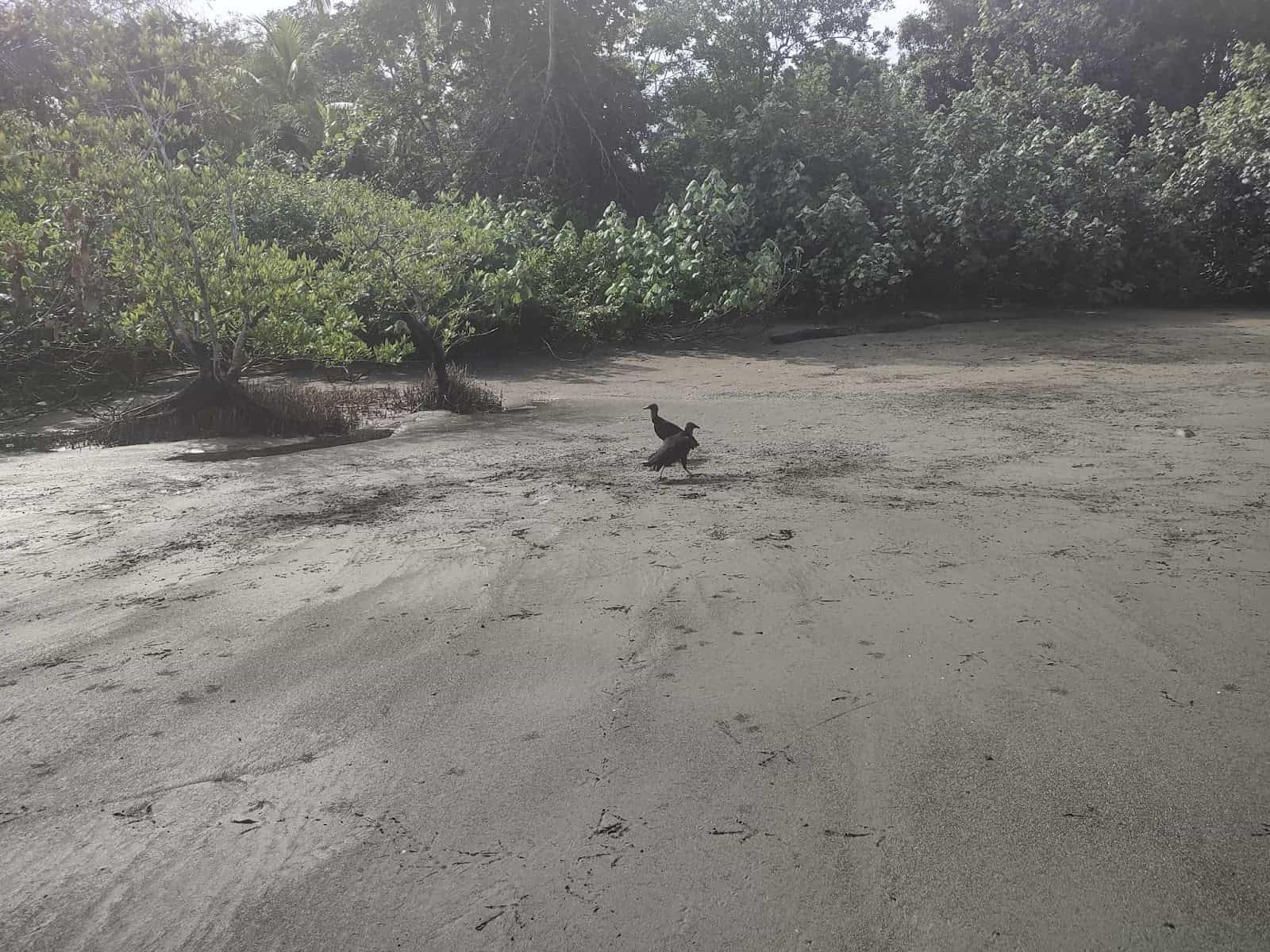
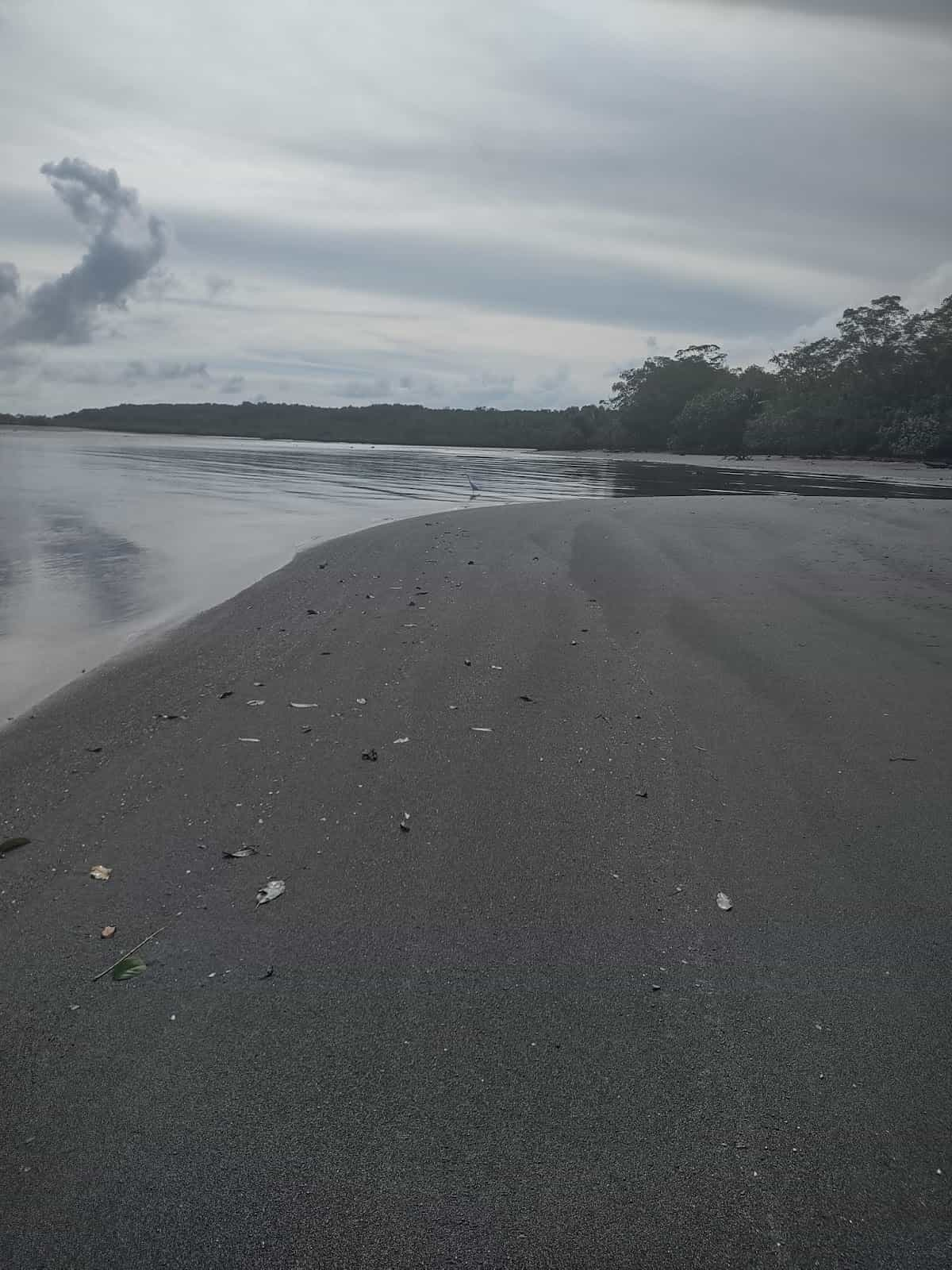
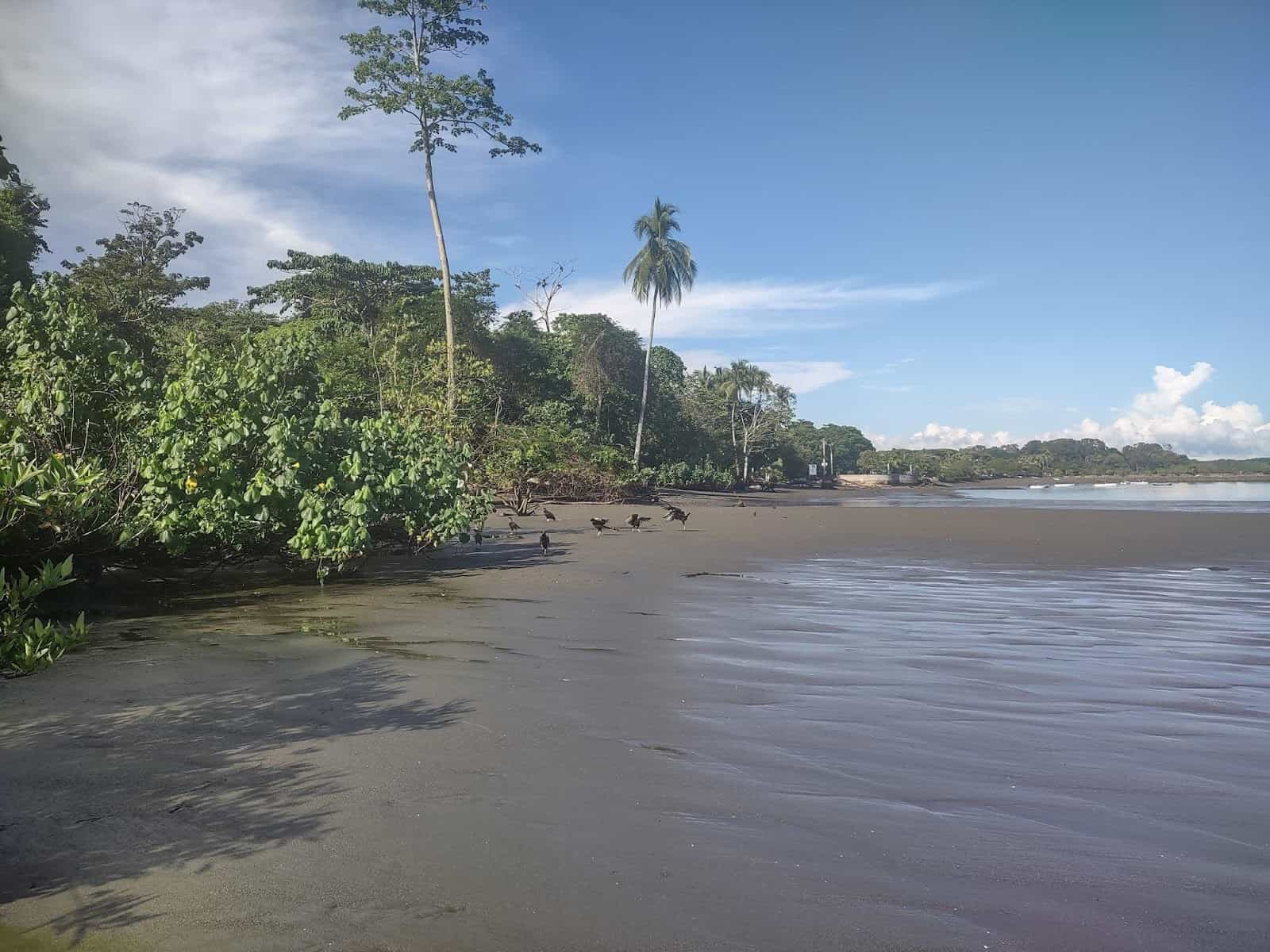
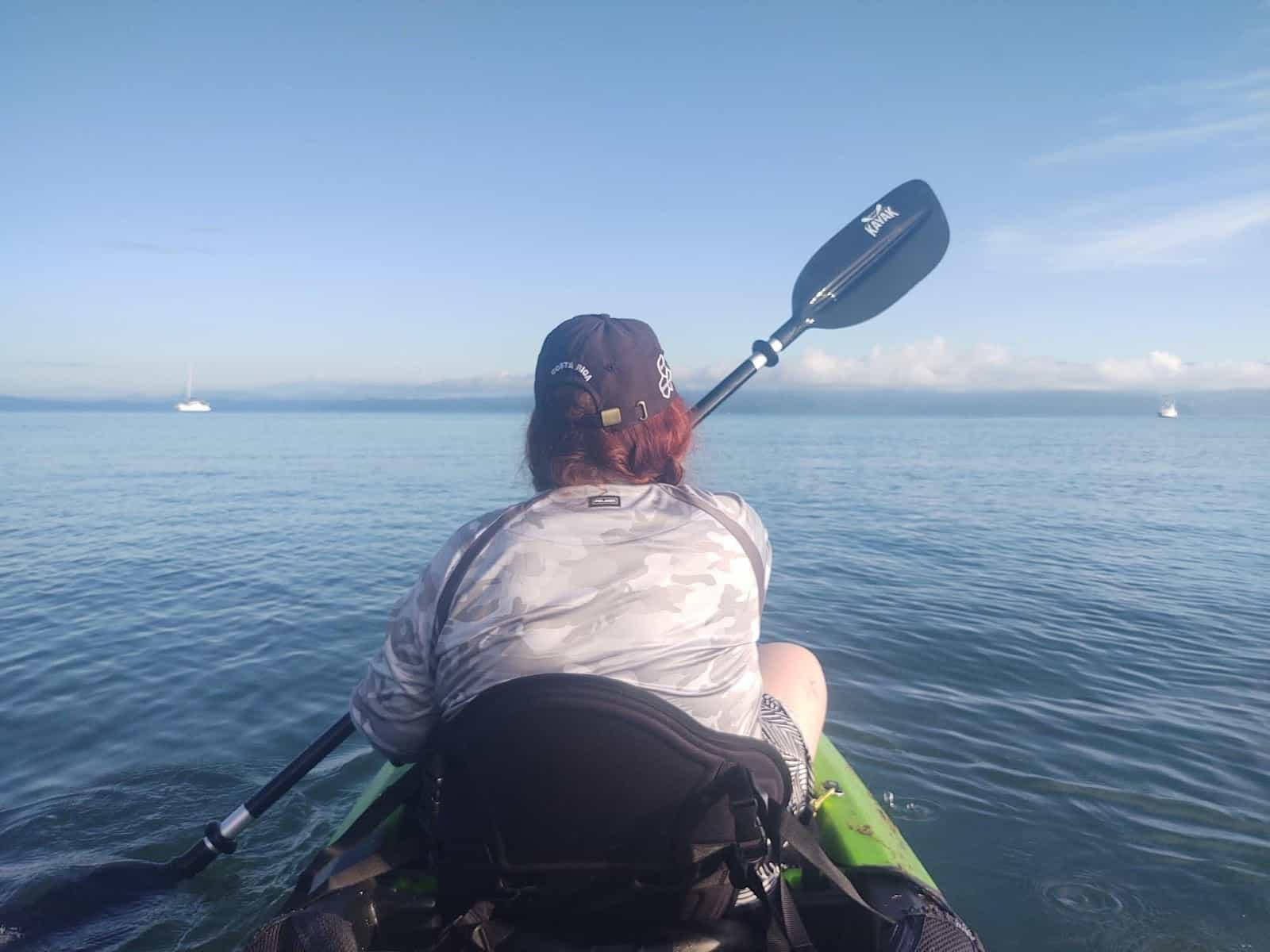
We went kayaking for a little while
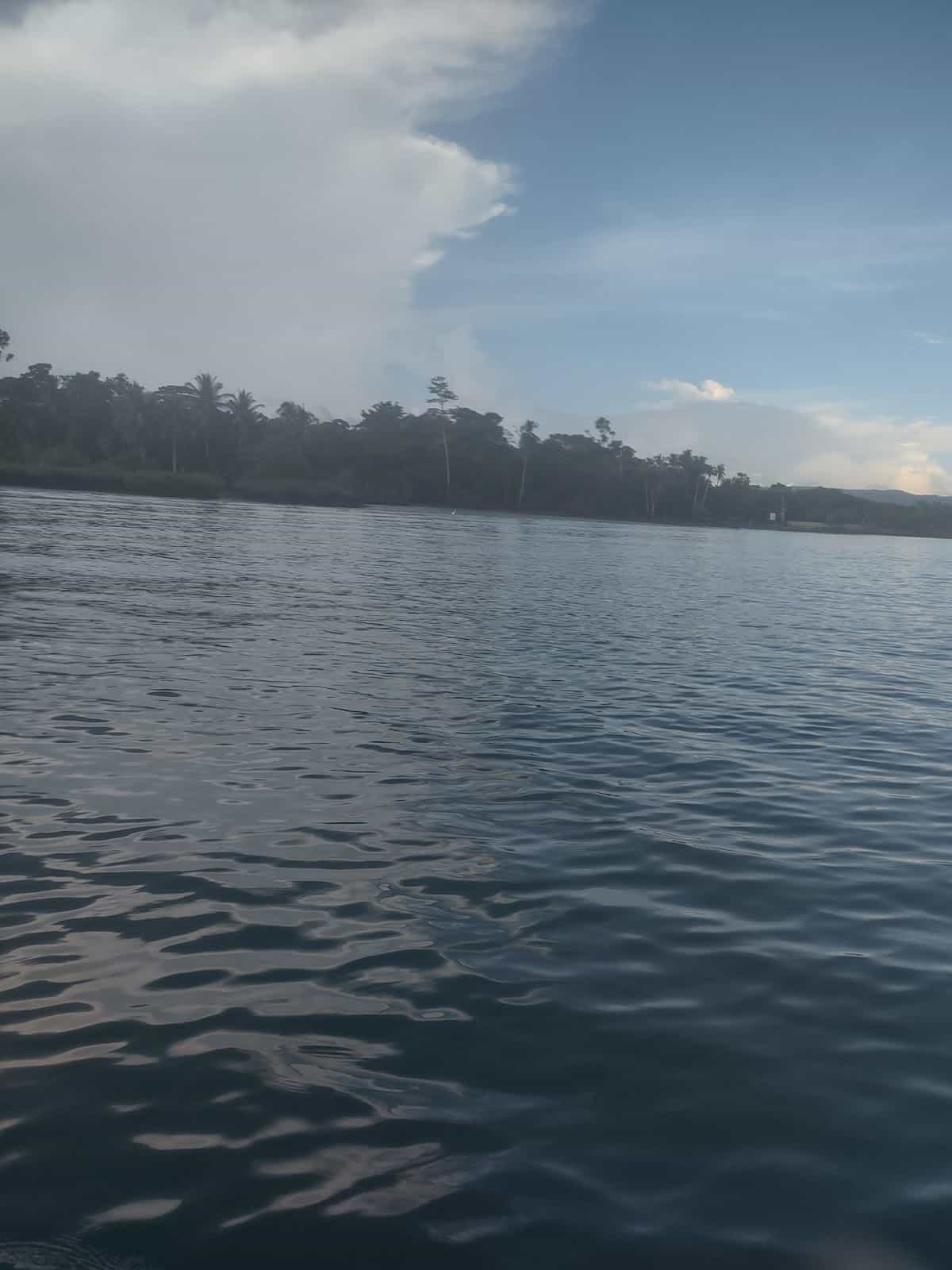
We also went to Playa Juanito Mora when we were out and just wanted a swim. We visited Playa Blanca and had a great lunch at Bistro Playa Blanca. We had some wonderful coffee and snacks at Cafe Monka.
Finca Kobo
The people at La Perica Sloth Garden recommended we check out Finca Kobo. It’s a hotel with sustainable gardens and a chocolate tour. The owner noticed that the monkeys ate the cocoa beans, so he planted a bunch of fruit trees and other plants for the monkeys and they left the cocoa alone!
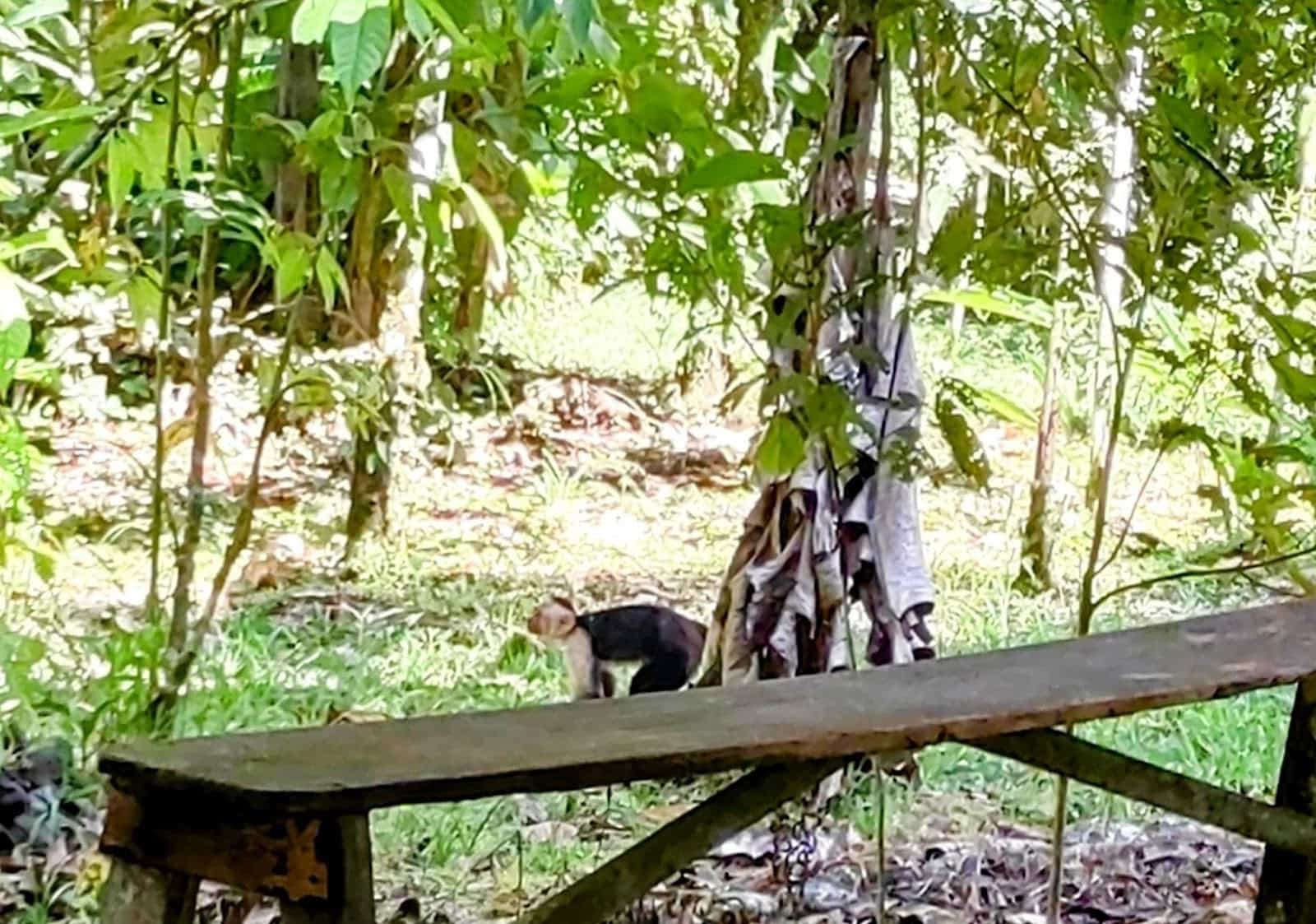
They were not giving tours the day we went, but they let us wander around the gardens. It’s here where we saw a lot of monkeys
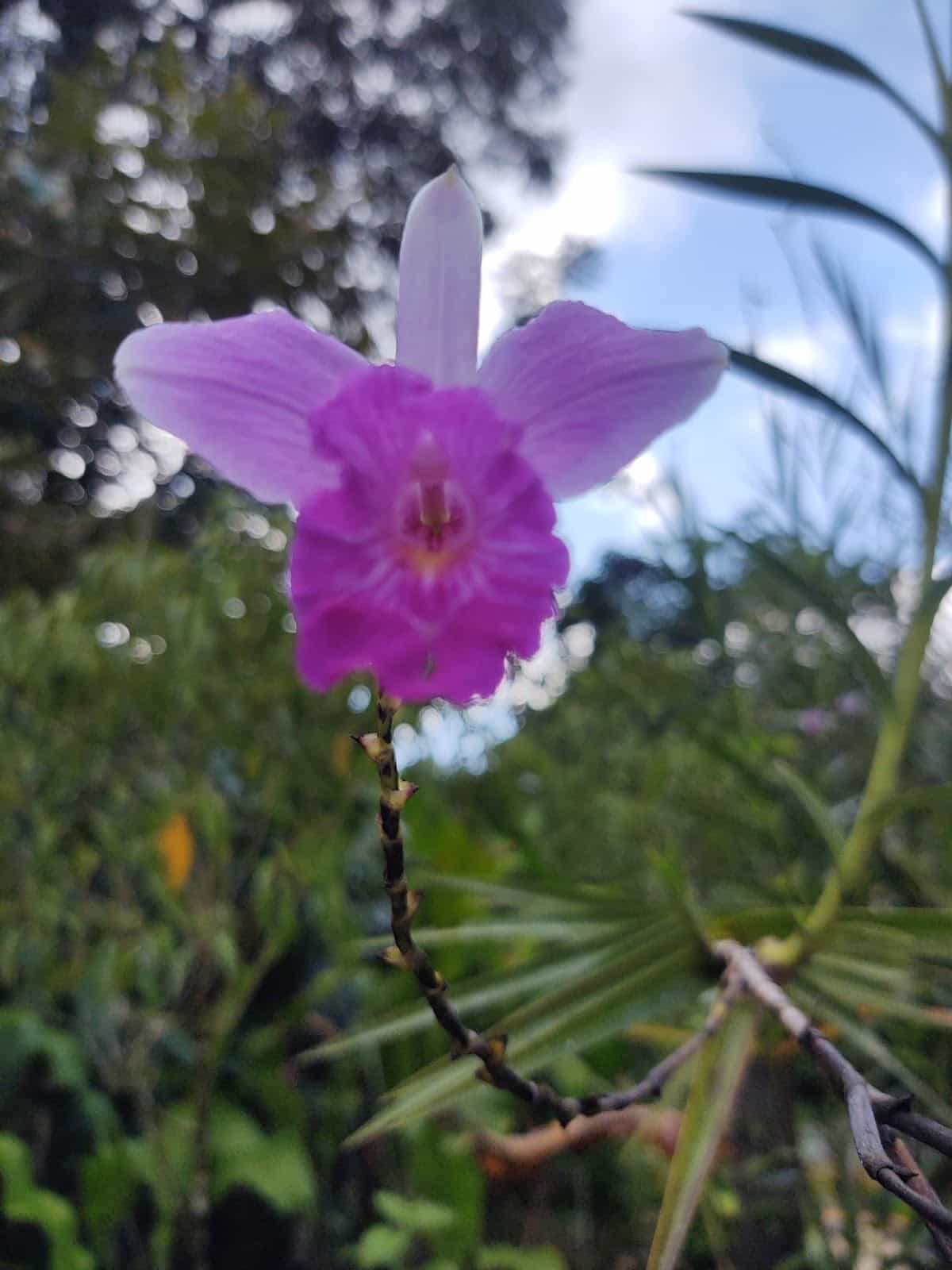
And some interesting plants
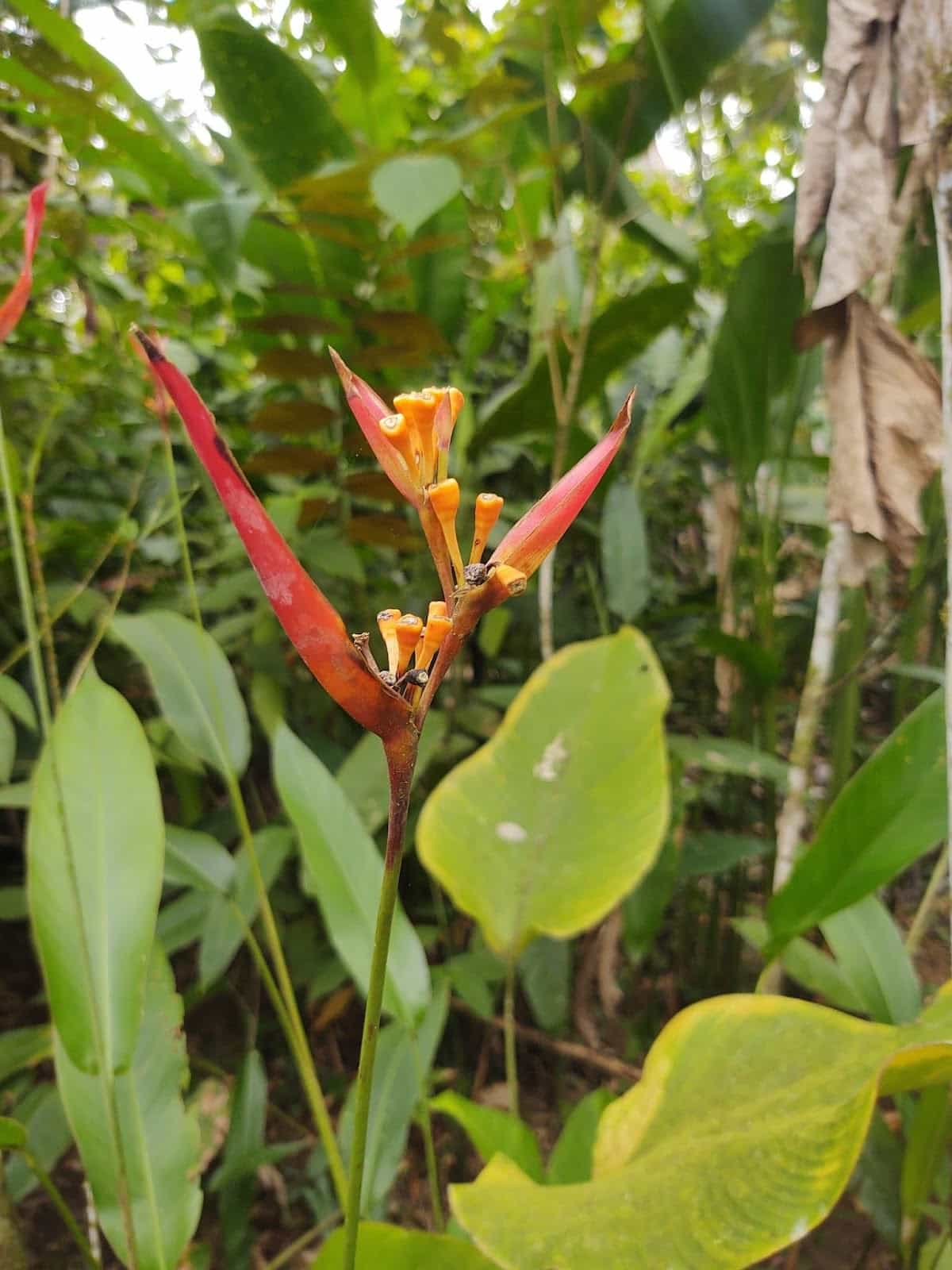
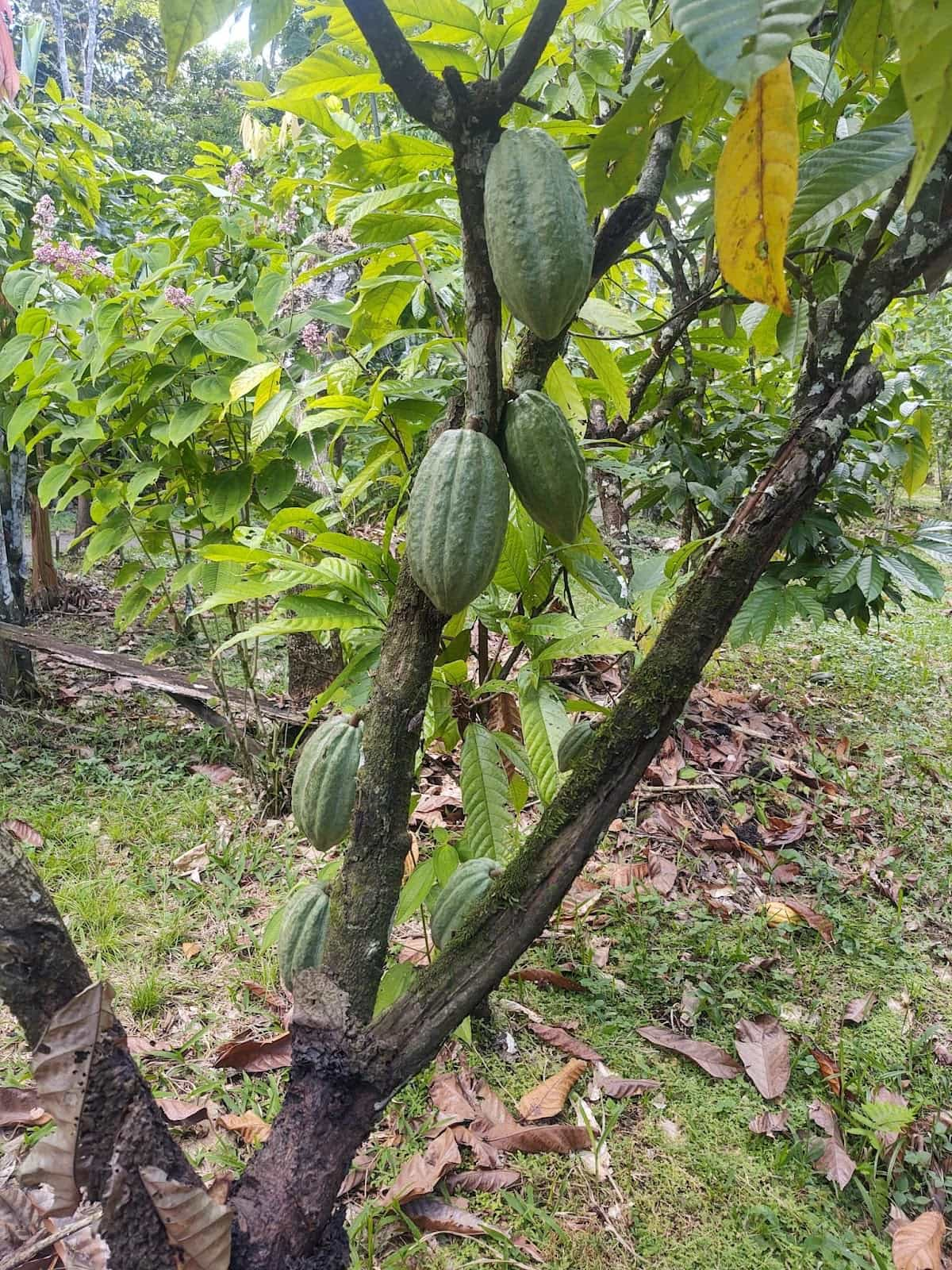
When our time in Puerto Jimenez was finished, we started heading back north to the airport, with a few days stop in Esterillos Oeste during our eco-tourism trip to Costa Rica.







New! Comments
Have your say about what you just read! Leave me a comment in the box below.